I met Arielle Steele recently at a backyard picnic at John Yost‘s house (Film Maker and Founder at Fifth Column Features). After about 30 minutes of engaging conversation I knew I wanted to highlight her story. So many of our freelance creatives are working day gigs with big aspirations of moving full time into their creative practice. Arielle brings a solid business background to hers and as if she is not busy enough, was recently named Vice President of the Board at the newly rejuvenated 518 Film Network – a group ACE! has produced some very successful networking events with in the past.
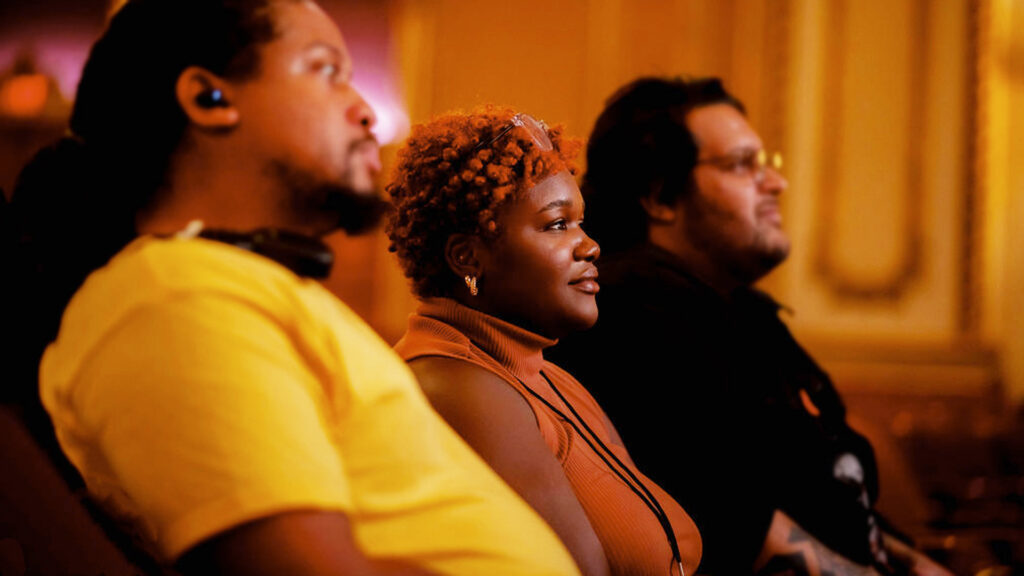
Please state your name, company and job title.
My name is Arielle Steele and I am a Wealth Management Professional at Ayco-Goldman Sachs by day and a Filmmaker-Producer by night. I obtained my Bachelor’s Degree in English Literature from Williams College, where I discovered film as a second love. Since then I’ve juggled my work in traditional 9-5s in education and finance with my passion for film. On set, I usually occupy the producer or associate producer’s seat. Recently I have expanded my work in film to include the festival circuit. In 2023 I was the Film Festival Coordinator for the inaugural Renaissance Black Film Festival here in Albany.
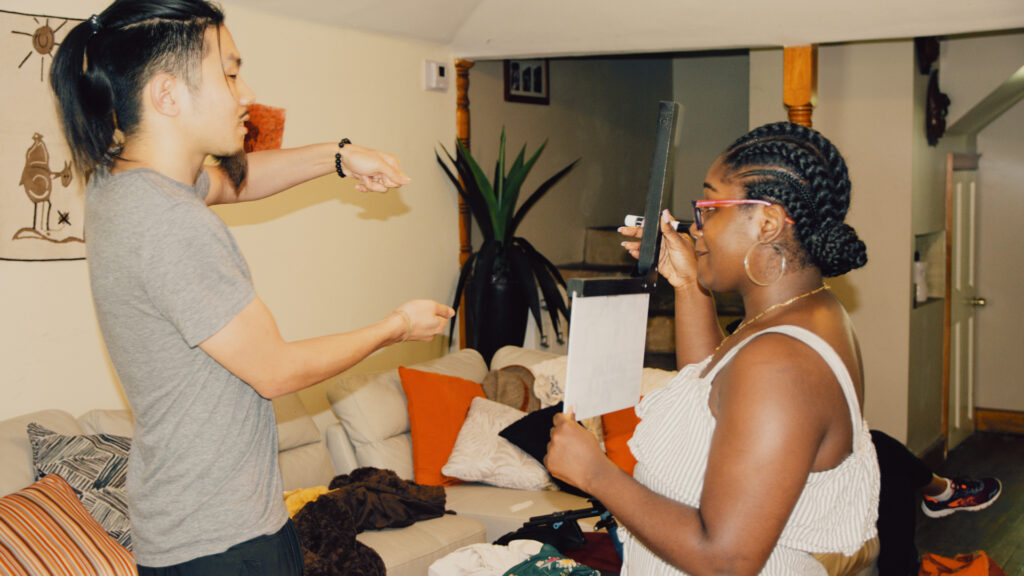
Can you share what a typical day looks like for you on your day job and one when you are running a creative project?
A typical day for me within finance is a day full of juggling competing priorities servicing our clients. Whether it’s executing trades over the phone with clients, sending out wires, liaising with internal teams to maintain brokerages, training new team members, or mentoring new hires with the developmental program I created with senior employees at the firm, my day is focused on providing great experiences for our clients and ensuring that my team is fully prepared to take on the day. There’s always an overarching project I’m working on in tandem with my daily asset movement and administrative responsibilities.
When I’m working on a creative project my day to day varies depending on the length of the project, the role I’m assuming, and where we are in production (pre, shooting, or post).
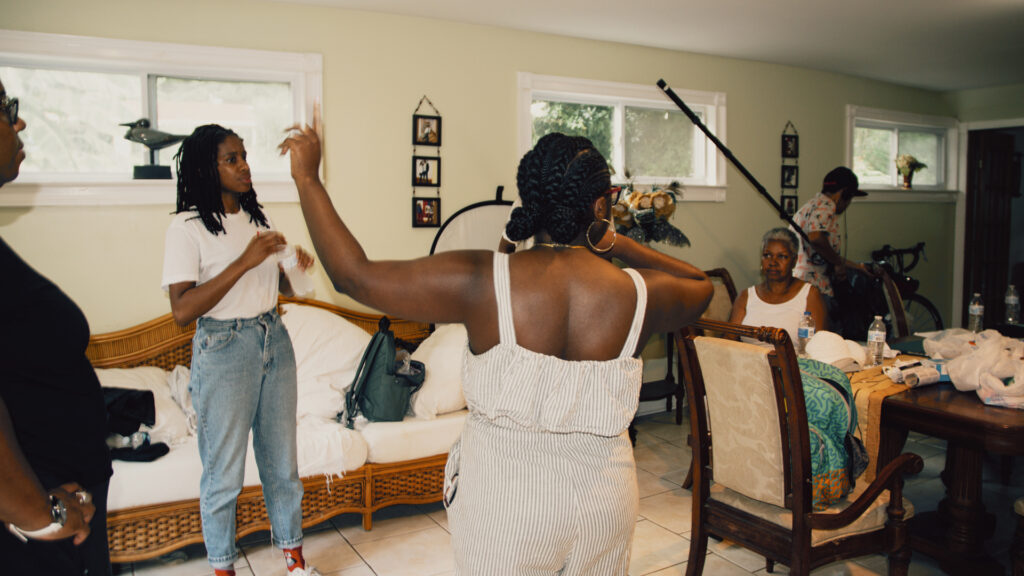
Because I have a full time job I typically choose short term projects, such as short films or music videos. On these days I’ll create call sheets for the next day, review shot lists, create sides for the actors and crew, and check in with PAs to make sure we’re ready to shoot for the day. If it’s a small enough shoot I’ll have to wear multiple hats and act as a PA myself, getting talent to the location, ensuring crafty and meals are available and served in a timely fashion. I’ll consistently check in with the AD and director to ensure we have what we need to shoot efficiently.
In many ways it mirrors my main job because I rely heavily on my project management skills both on and off set.
However, pre-production is my favorite part of the process. Everyone is bubbling with excitement and the seemingly near endless possibilities for the project, while I’m thinking of ways to harness this energy to yield the best results. I work with the director and in some cases writer-director to grasp their vision and offer solutions for costuming, locations, and crew that strikes the balance of honoring their vision and the budget. Then we crunch the numbers and conquer! These meetings typically span a few days in the evenings to accommodate my availability.
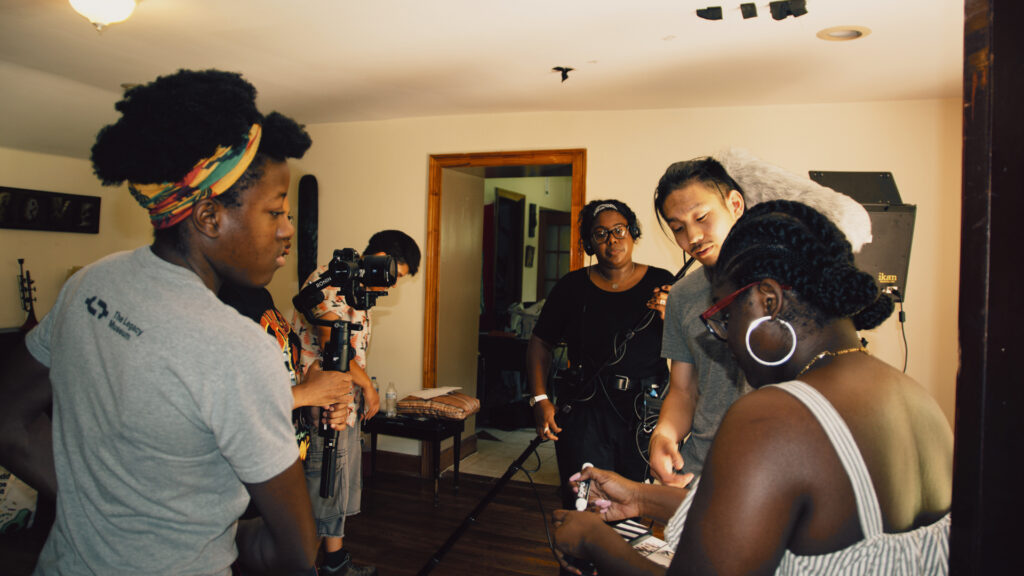
How do navigate finding time wearing the different hats of these two very different roles? Are there any ways in which your day job helps you in your creative practice?
Honestly speaking navigating these two roles can get challenging when I’m in the throes of a film project. Knowing that my main job has its peaks I’ll plan to work on projects during the financial “off season.” This is only part of the battle. When on set I’ll try to be there during off days and capitalize on my evenings doing prep work for a shoot. So for a week I’ll be firing on all cylinders.
As for transferable skills, there unexpectedly is a lot of overlap. Excel is both my friend and foe on both sides of the aisle. I check in constantly with other teams/heads of departments and produce deliverables for my supervisor/directors. In the pre-production stage I create pitch decks to secure funding for films, and in the office I’ve created pitch decks for developmental programming. Though finance and film seem to be worlds apart, in terms of production they actually work in tandem with one another.
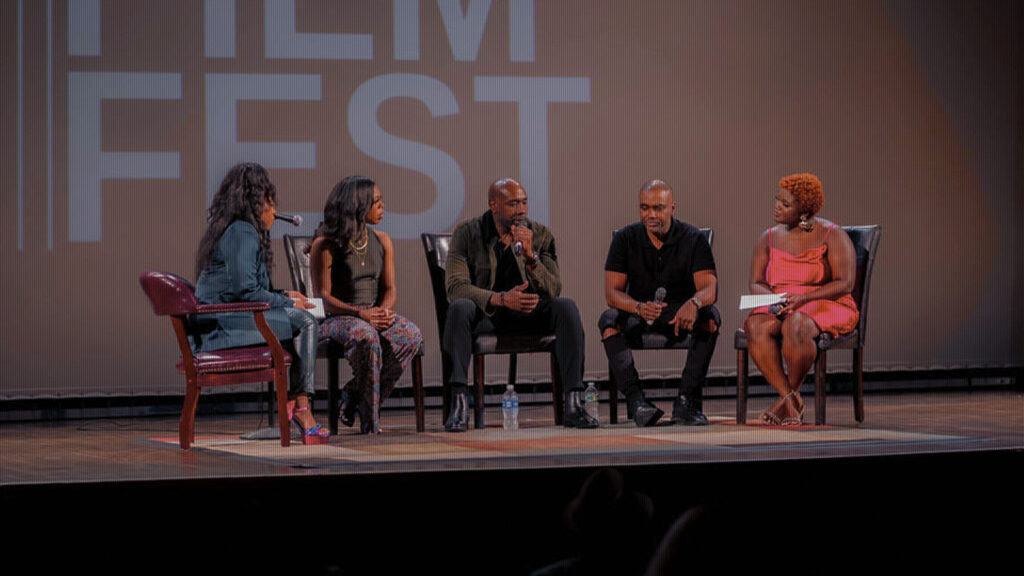
Any particular projects that you would like to share that you are especially proud of?
One project that I’m especially proud of was the film programming I did for the Renaissance Black Film Festival. We secured 100+ submissions on the first go around, and the shorts we selected were phenomenal. Under Kevin Johnson and Patrick Harris’ leadership I was able to moderate a panel with Jamal Hill, Gail Bean, and Morris Chestnut. It has been a career highlight for me.
Additionally my work with non-profit 518 Film Network has invigorated me. Created by Michelle Polacinski and Micah Khan, the network was founded on the idea of forging an equitable and rich filmmaking community, something I really resonated with. When Michelle and Micah decided to end their terms, it gave me the opportunity to be an active participant with the 518 film community. I’m really excited for the work we’re doing and the programming to come this summer!
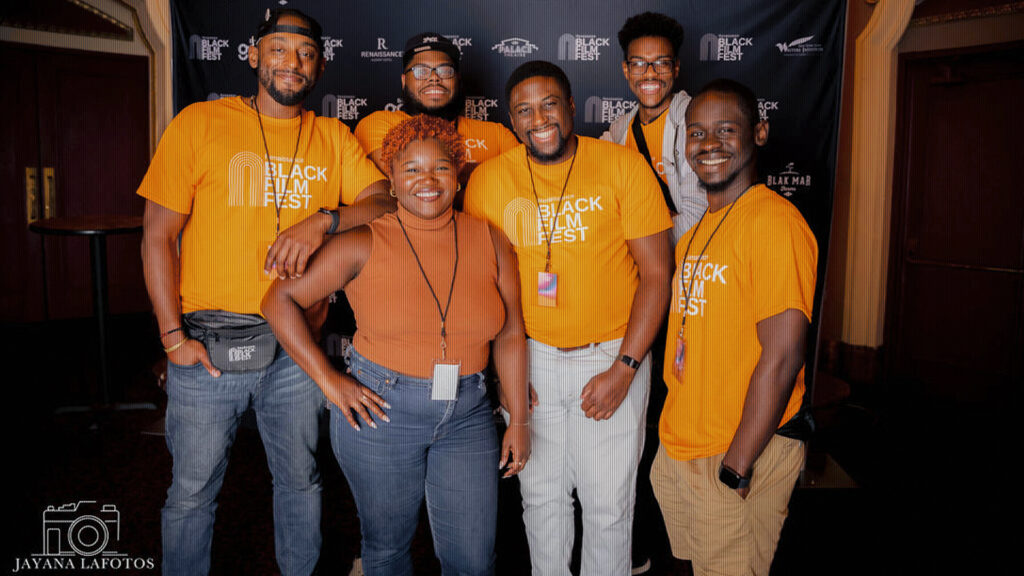
As a female and minority Film Producer how would you describe the state of opportunity for you to participate in projects regionally? The challenges? What advice would you give to other women who are looking to participate more in leadership roles in the industry regionally?
The projects I typically work on are for independent filmmakers so that field varies from commercial opportunities. Bearing that in mind, as an emerging producer my opportunities have been generated by my personal network. I am incredibly thankful for those who have seen my passion for production and trusted in the vision.
This is not to say that I haven’t tried mainstream avenues within local television networks. In the past I’ve tried to go that route and it was difficult. Even applying for Production Assistant positions, networks want to see a traditional film history, which as a multi-hyphenate hailing from a liberal arts college, I didn’t have. People don’t want to take a gamble which is understandable, but it makes it that much harder for greener folks, and women of color especially to get in the door.
My advice to those like me, who don’t reflect the majority of the industry, is to find their community and keep showing up. Of course landing your first big job with a network, Netflix production, or Hollywood production is major. But until then hop on projects with your friends, get to know other creators in your area so you can keep working and getting to know the world around you. Network across so you can grow with your siblings in film, as you identify possible mentors in your given field. While your mentor helps you stay true to your ultimate goal, your comrades will inspire you and aid you in strengthening your creative muscles. Show up, give as much as you get and create. Your time will come. It’s taken me since 2016 of on and off work to get to this point and I still have a ways to go.
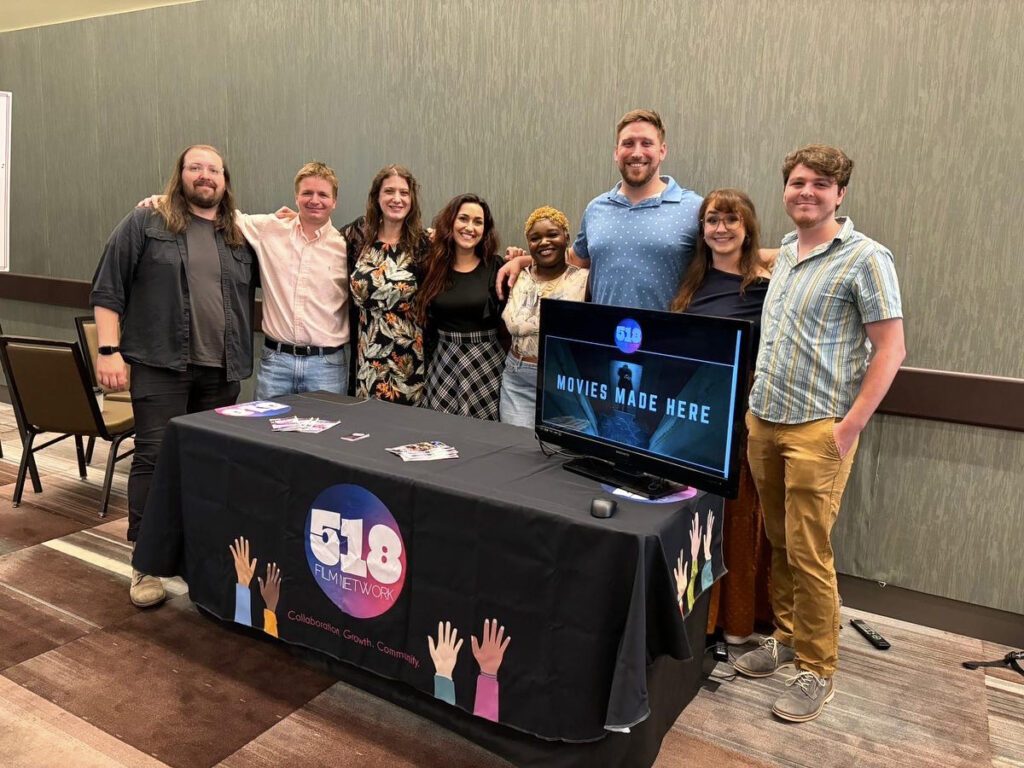
Anything coming up you would like to shamelessly plug? Long term plans / goals you would like to share?
Shameless plug: I am now the Board VP of 518 Film Network and I’m very proud to announce that 518 Film Network has relaunched and we are now accepting members! We offer filmmakers in the region a chance to connect and showcase their work via screenings. We eventually will be expanding on educational opportunities for members and will be hosting mixers this summer.
FOR MORE INFO: arielle-steele.com